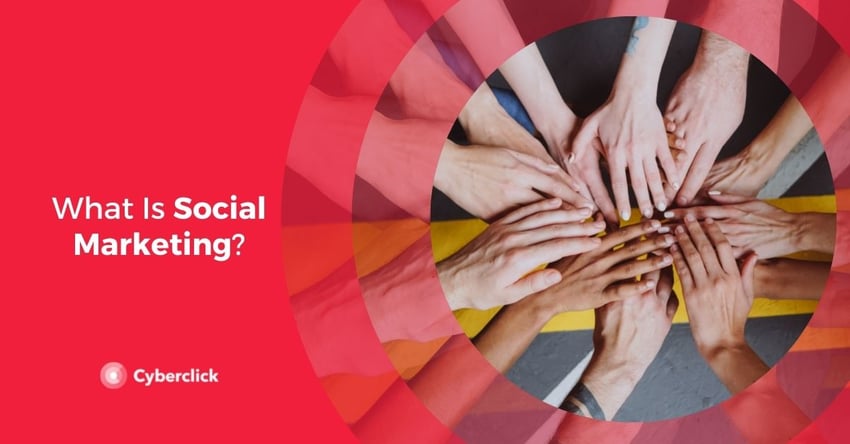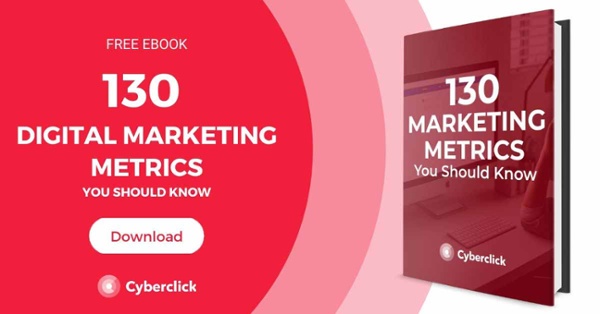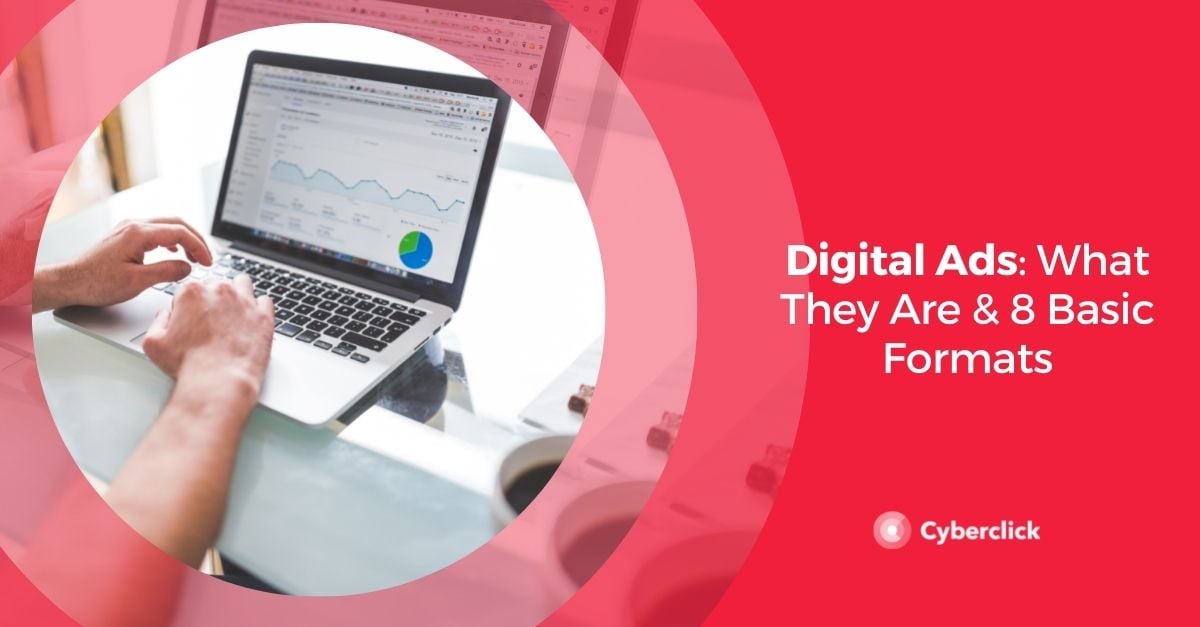Social marketing is a sub-branch of marketing designed to encourage social change. Instead of focusing on selling a product, it sells a behavior that benefits society. This is closely linked with the principles of corporate social responsibility and of sustainable development.
Here, we will discuss the concept of social marketing and explain how it can be used to evoke emotions that motivate positive actions. We will also discuss how it can benefit your business and share a few well-known social marketing examples to demonstrate the reach and impact the right campaign can have.

What Is Social Marketing?
Social marketing, also known as societal marketing, is a type of marketing that’s focused on a social purpose rather than profit. The aim is to drive changes in behavior that provide long-term benefits to society. In contrast to the hard sell of traditional commercial strategies, social marketing is more concerned with social aspects such as corporate social responsibility and sustainable development.
Social marketing usually aims to address concerns like:
- Environmental issues such as pollution, waste, recycling, and global warming
- Depletion of natural resources due to exploitative behavior
- Hunger and poverty
- Obesity and other health problems
- Health and safety issues such as drugs and smoking, safe driving, etc.
- Low access to education, health, and other social services
- Bullying
- Social inequalities such as discrimination due to gender, race, disabilities, etc.
This type of marketing is used by a number of sectors including non-profit organizations, charities, government organizations and emergency services. However, it is also being increasingly used by commercial businesses as a way to raise awareness of causes they care about. This in turn improves brand awareness and helps organizations build a reputation based on social responsibility and ethical business practices, values that are becoming increasingly important for consumers.
Why Is Social Marketing Important?
There are a number of reasons why social marketing is becoming increasingly important. Here are a few examples of how this marketing strategy could benefit your business.
- Consumers prefer to buy products from businesses that are ethical and socially responsible. Launching a social marketing campaign can help you solidify your reputation as an ethical, socially responsible brand, attracting new customers and giving you a competitive edge. Plus, social and environmental marketing campaigns are expected to grow in popularity as concerns over societal and planetary issues increase.
- Aside from boosting your reputation, the right social campaign can also help you identify your Unique Selling Point (USP) and find your place in the market.
- Another benefit of being perceived as a socially and ethically responsible company is that consumers are happy to pay a premium if they feel they are supporting the greater good. This means you can charge higher prices without fear of scaring off your target market.
- A well-executed social marketing campaign captures attention and spreads awareness through creativity and emotion. Because campaigns are focused on eliciting an emotional response, consumers are far more likely to form an emotional bond with your brand and become loyal customers.
- Social marketing is especially powerful when it involves a charitable donations because people want to make a difference in the world.
Best Examples of Social Marketing
The best social marketing strategy focuses on five primary goals:
- Raising brand awareness
- Building loyalty and advocacy
- Driving sales
- Increasing site traffic
- Soliciting feedback
Let’s take a look at a few social marketing examples from companies who have done it right.
See How Easy Feeding the Hungry Can Be?
Feed SA is a non-profit that sets up feeding schemes and community development projects in vulnerable communities around South Africa. They launched a clever social marketing campaign a number of years back with the aim of encouraging supermarket shoppers to make food donations to starving children.
The campaign was simple and effective. The NGO placed images of hungry children holding out their hands in shopping carts, begging for food, so it looked like any food placed in the shopping cart was being given to the child. The carts also displayed the slogan “See how easy feeding the hungry can be?” The aim was to play on the heartstrings of shoppers and encourage them to add to food donation bins while buying their own groceries.
Feed SA experienced a marked increase in donations and a significant boost in website traffic.
Plastic Bags Kill
Another great example of social marketing was launched by BBDO, an ad agency in Malaysia. The aim of the campaign was to raise awareness about the damaging effect of plastic on our oceans and to reduce disposable plastic bag use. They did this by using striking imagery and messaging on the plastic bags themselves.
The image: a turtle in distress, placed in such a way that it looked like the person holding the clear plastic bag was actually holding the turtle by its neck.
The message: “Plastic bags kill”
The campaign was successful because it conveyed a clear image of animal cruelty that was difficult to ignore. This elicited an emotional response in many shoppers. It educated people on the true scale of plastic pollution and transformed them from passive to active participants.
Dove’s #ShowUs
Finally, we can’t talk about social marketing examples without mentioning Dove, one of the pioneers of social marketing. For close to two decades, Dove has been a vocal advocate of body positivity, promoting inclusive and inspirational messaging in all its campaigns. The brand is highly committed to improving female self-esteem and challenging racial, ethnic, and gender stereotypes.
Dove’s first social marketing strategy, Campaign for Real Beauty, was launched back in 2004. The aim was to challenge the stereotype of what constitutes beauty in women. More recently, the company has launched its #ShowUs campaign, a collaborative project carried out in association with Getty Images and Girl Gaze. The move builds on its commitment to share a more inclusive vision of beauty.
The concept is simple: Dove launched a global image library created and curated exclusively by women, female-identifying and non-binary individuals from all around the world. Content is user generated and images can be licensed out for creative projects.
The campaign has had a global impact since its launch, with 62% of women believing #ShowUs images better represent how most women in their country look, and 66% saying they’re more likely to purchase brands that use #ShowUs images.
Shanon es una diseñadora multidisciplinaria especializada en la creación de diversos activos digitales, como campañas digitales, videos o ebooks. Con experiencia en marketing digital y inbound marketing, Shanon destaca en el desarrollo de landing pages y webs para clientes usando HubSpot.
Front-End Developer & Graphic Designer. Shanon is a multidisciplinary designer specialized in creating diverse digital assets, including digital ads, videos, ebooks, and more. With a background in digital and inbound marketing, Shanon excels in developing impactful landing and web pages for clients using HubSpot.



.jpg)
.png)

Leave your comment and join the conversation